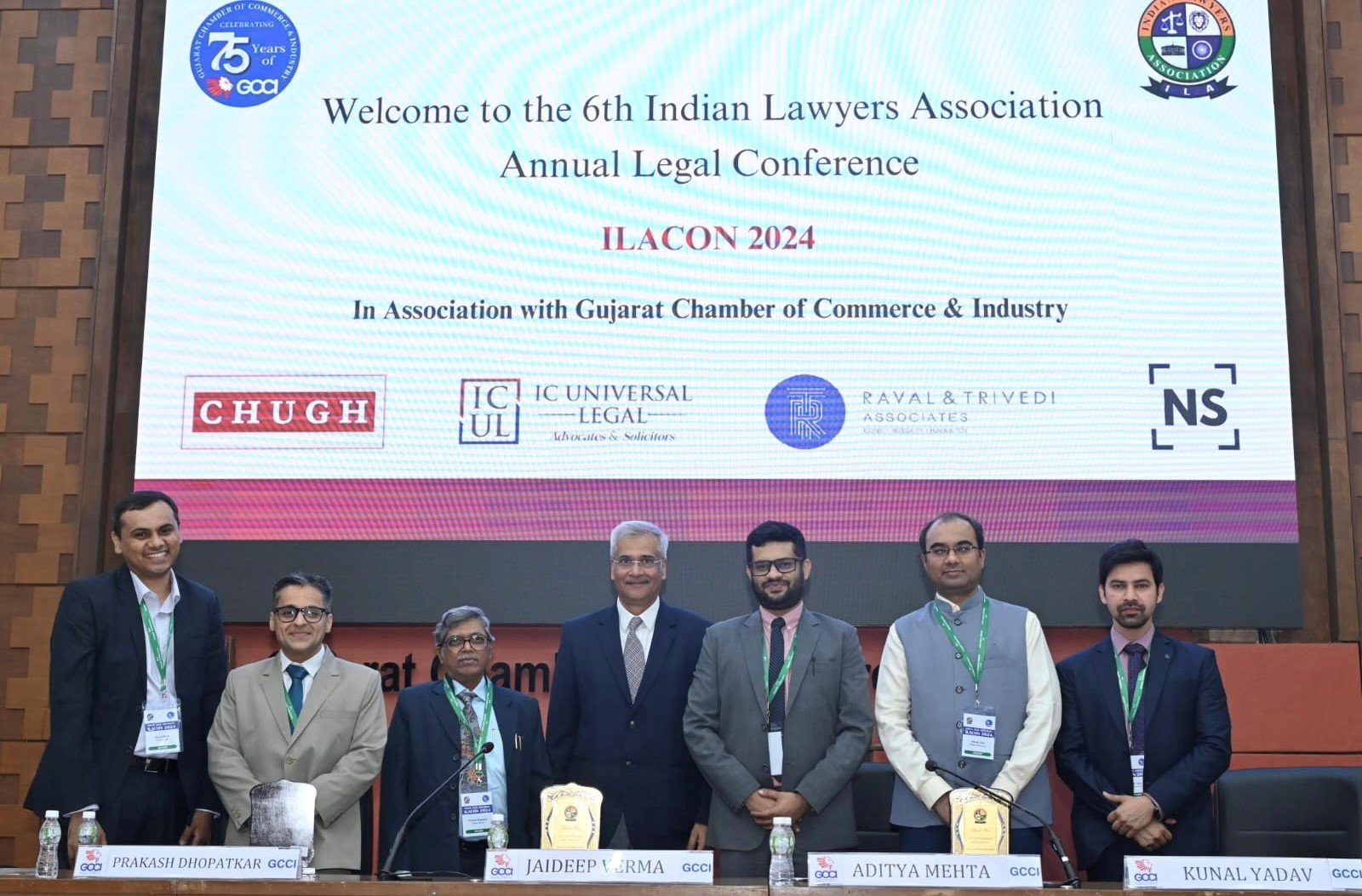The Indian Lawyers Association (ILA), hosted the 6th Annual ILA Conference on 30th November 2024 at the Gujarat Chamber of Commerce & Industry in Ahmedabad, Gujarat. The event featured engaging panel discussions on various legal topics, attracting a distinguished gathering of legal experts, business leaders, and policymakers, a press release informed.
In his welcome address, Aayush Modi, Chairman of GCCI’s Intellectual Property Rights (IPR) Committee, extended a warm welcome to the dignitaries, GCCI Office Bearers, and the speakers.
Delivering the keynote welcome, GCCI President Sandeep Engineer commended the efforts of Aayush Modi and team, in organizing the event. He emphasized the significance of the conference in light of Prime Minister Narendra Modi’s vision of a “Viksit Bharat” by 2047. Engineer highlighted the necessity of evolving litigation, arbitration, and dispute resolution processes to align with India’s aspirations of becoming a first-world nation.
The conference was structured into three plenary sessions and two breakout discussions, fostering insightful deliberations. The conference also featured two specialized breakout sessions on Employment and Labour Laws and Intellectual Property issues.
Dr. Aniruddha Babar, represented the Tetso College, Nagaland, at the Conference. Exploring the Intellectual Property issues, Dr Babar underscored the pressing need for government intervention and support from large corporations under Corporate Social Responsibility (CSR) initiatives to aid young entrepreneurs, particularly those from marginalised communities and rural areas across Northeast India. He highlighted strategies for startups and aspiring entrepreneurs to leverage the region’s abundant resources, with a particular emphasis on Nagaland. Dr. Babar also advocated for the formulation of a comprehensive state labour policy aligned with latest central labour codes and called for a revision of the Nagaland State Industrial Policy, which was last updated in 2004.
Moreover, he proposed the establishment of centrally sponsored and supervised mini-incubation centres to address the unique challenges faced by entrepreneurs in remote regions. Dr. Babar further stressed the importance of identifying and safeguarding products and practices eligible for Geographical Indications (GIs), to preserve and promote the region’s cultural and economic heritage.


